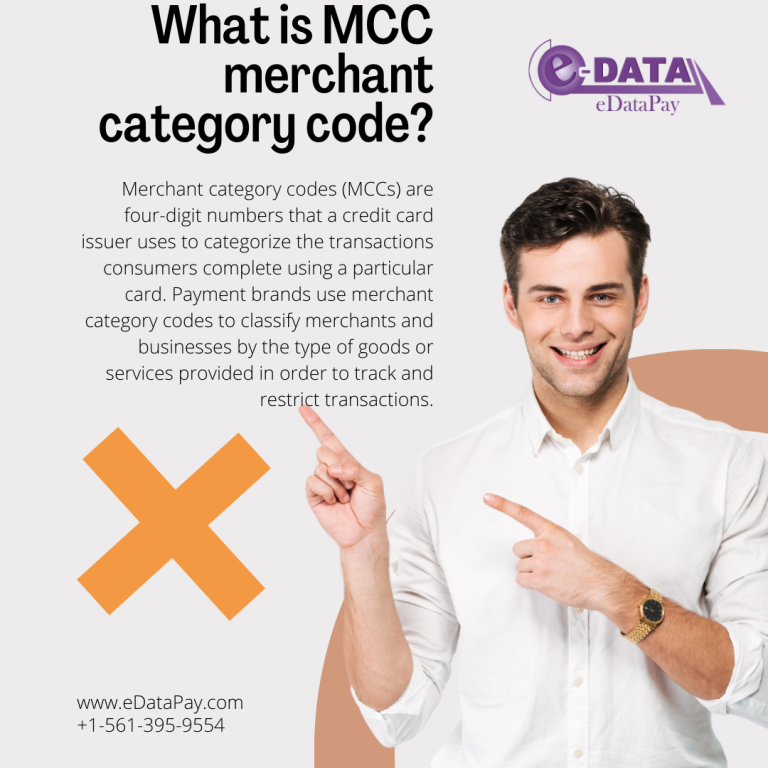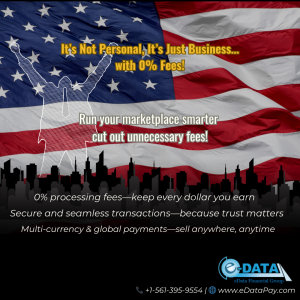A Merchant Category Code is a four-digit number listed in ISO 18245 for retail financial services. An MCC is used to classify a business by the types of goods or services it provides. Wikipedia
MCC stands for Merchant Category Code.
What Is a Merchant Category Code (MCC)? A Merchant Category Code (MCC) is a four-digit code assigned to a business by credit card networks such as Visa, Mastercard, and American Express. The MCC categorizes the type of business or products sold by the merchant. This code is used to classify the merchant’s transactions for various purposes such as tracking and reporting of purchases, determining interchange fees, and identifying fraud risks. MCCs are used by banks, payment processors, and merchants to ensure that transactions are properly categorized and processed.
A merchant category code, or MCC, is a four-digit number that tells credit card companies what a business sells or does. The International Organization for Standardization, or ISO, was made to make filing 1099 tax forms easier. It sets and defines merchant category codes. Even though these codes only have four numbers, they are important for both consumers and business owners.
As soon as you start taking credit card payments, the credit card company will give your business a merchant category code. For instance, Citibank might give a business that sells clothes the code 5599, which stands for “Retail Outlet Services” [1].
woman hands credit card to man and asks, “What is mcc?”
Most of the time, the merchant category code shows what a business sells the most of. If a business has different parts, it could have more than one MCC. For example, a local grocery store with a pharmacy might have two MCCs: one for grocery sales and one for pharmacy sales.
Banks use these codes to figure out rate options, interchange fees, cashback rewards, and more. MCCs are also used by credit card companies to keep track of the industries that use their cards the most.
Today, credit card networks are the only ones who can make the final decision about a business’s merchant category code. Visa, American Express, and Mastercard all have their own MCC lists, but they are mostly the same.
What is the point of Merchant Category Codes?
Both businesses and customers need to know what a merchant category code means. MCCs often decide the rates and fees that merchants charge for transactions. MCCs may have an effect on the following for businesses:
Interchange rates, or the fees a business must pay for every debit or credit card transaction
Card companies define the risk assessment of a business as
Fees for taking credit cards
There are special features that a business can use, like the ability to charge convenience fees.
Tax payments and how the Internal Revenue Service puts a business into a certain category
MCCs affect how consumers earn rewards on their credit card purchases.
Owners of businesses
Interchange rates are one way in which merchant category codes can affect a business. MCCs are used by companies like Visa and Mastercard to figure out how much a business has to pay in fees to process credit cards. Interchange rates should always be the best they can be for a business.
Interchange rates are set by credit card companies based on how “risky” they think a business is. Businesses with more risk may have to pay more in fees and rates. When a credit card company classifies a business, it will give it a high-risk code if any part of the merchant’s business falls under a merchant category code that the company considers high-risk.
There can be other problems with having a high-risk merchant category code. This can mean not getting the same protections against eCommerce fraud as other businesses. Some MCCs, like those for gambling and money orders, do not get these protections when a card is not present. And if a chargeback happens, the fees might be higher.
Credit card companies sometimes won’t do business with high-risk companies at all. For example, if a customer wants to use their Health Savings Account (HSA) to pay for a good or service, your business must have the right merchant category code. Also, not every business can charge customers a fee for using a credit card. Merchant category codes can determine if a business is eligible to do so.
On the other hand, depending on their merchant category code, some businesses or organizations can get a lower interchange rate. These businesses can be non-profits or businesses in new markets, like the healthcare or education industries.
An MCC could also change how a business reports its taxes. For instance, an MCC can have an effect on a business if it can report some payments on a Form 1099-MISC.
For the public
Consumers are mostly affected by merchant category codes through how credit card rewards are calculated.
At her desk, a happy woman learns about mcc codes
Today, cashback and credit card rewards can be significant factors for consumers. Credit card companies lump together purchases into spending categories. When a cardholder spends money in certain ways, they often get rewards or extra rewards. Most of the time, the spending category that earns rewards changes every month or three months.
Some people may be surprised to learn that the things they buy don’t affect whether or not they can get these rewards. Instead, the reward eligibility is decided by the merchant category code. So, if someone buys a hot sandwich at their local grocery store, it might go in the grocery store category instead of the restaurant category. This is important information for cardholders who want to get the most out of their rewards.
Consumers can also use merchant category codes to understand their bank statements and figure out what charges are for. For example, if someone doesn’t recognize a charge on their monthly bill, the MCC can help them find the vendor.
Lastly, an MCC tells customers with business cards what they can write on their Form 1099-MISC.
Merchant Category Codes: Some Examples
Let’s look at how MCCs are used in the real world.
Say you run a business where employees can use their company cards for work expenses. One of your employees fills out an expense report for $300 worth of party supplies for the office from a store called Local Pharmacy. They don’t include a receipt with the report, and the MCC stands out.
You can see that Local Pharmacy’s MCC is not 5912, which is the usual code for pharmacies and drugstores. Instead, the MCC for a bar is 5813. Local Pharmacy is really a bar with a clever name. You can’t be fooled because you know about MCCs.
Look up a merchant’s category code
How do you find your MCC? Or other businesses’ MCCs?
For their MCC, businesses can ask their credit card processors for it. You can contact your merchant service provider or payment processor if you think your business has the wrong MCC or if you need to change it.
You can also use the other tools below to find an MCC.
Where can you find a code for a merchant?
Each credit card company has its own MCC list. This means that an MCC list can be found by going through a card network. To find the list, look up the name of the processor and “merchant category codes.”
This is made easier by the fact that many merchant account providers post MCC lists. You can also call the company at the number on the back of your credit card.
Visa’s Merchant Locator Tool is a good way to find MCCs [2]. This lets people look up MCCs no matter where they shop. Just look for a business in your area or look for a business by its exact name. Users can also look up merchants by MCC with this tool.
Codes for each type of business
Now that you know what MCCs are, how they affect businesses and cardholders, and where to find them, let’s look at some lists of real MCCs.
Some of the most popular MCCs look like this:
Code for the type of business (MCC)
Description
Business Examples
5411
Supermarkets
Fairway Market and Whole Foods
5812
Restaurants
TGI Friday’s is a restaurant chain.
5814
Quick-service restaurants
McDonald’s, Burger King
5912
Pharmacies
CVS, Walgreens
5942
Bookstores
Barnes & Noble
Here is an example of an MCC that has a high risk:
Code for the type of business (MCC)
Description
5993
Cigar stores
5996
Direct marketing—telemarketing that goes out to customers
5967
Direct marketing—teleservices that come to the merchants
7995
Bets, like those made at horse races, on lottery tickets, or with casino chips.
Some companies each have their own MCC. For instance, the MCC for Hyatt Hotels is 3640. A technical committee set up by the ISO lets a big company with at least $10 million in sales ask for a unique code.
One Last Thing
MCCs are four-digit numbers that affect many things about your business, from how you process credit cards and what fees you have to pay to how you do your taxes. In the worst case, the wrong MCC classification could make people not want to do business with you. But you can avoid that by finding the right credit card processing solution and working with a team to make sure your merchant category code works for your business.
Merchant Category Codes (MCCs) are crucial to various aspects of your business, ranging from credit card processing options and fees to tax reporting. Inaccurate MCC classification can negatively impact your business, including losing potential customers. Therefore, it is vital to find the appropriate credit card processing solution that suits your business needs, with a team dedicated to ensuring your MCC is correctly assigned. By doing so, you can avoid potential issues and streamline your business operations. In conclusion, taking the time to understand and properly manage your MCC can help your business thrive and succeed in the long term.
eData Management Team









